Meaningful Multiparty Elections with Instant Runoff Voting
Which of the following best describes your political orientation?
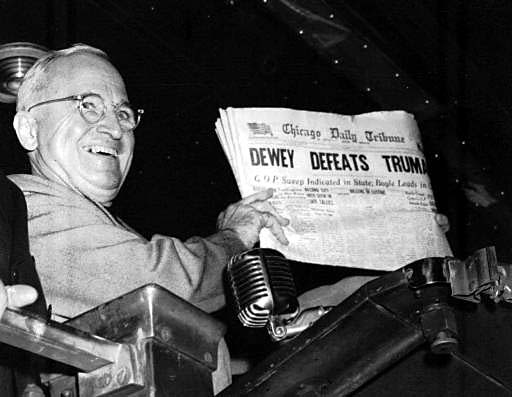
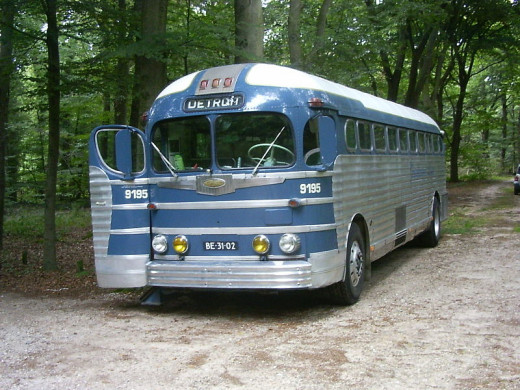
An illustrative game for commuters
We can gain a deeper understanding of how elections work--and sometimes fail to work--by looking at a simple mathematical game.
Three friends who are neighbors, and who work in the same building downtown, sit together while commuting on the bus. They've created a game to spice up an otherwise uneventful bus ride. Here's how it works.
The bus ride takes anywhere from 20 to 28 minutes each way, depending on traffic. Each player wagers the cost of half a cup of Starbucks coffee at lunchtime on his estimate of how long it will take to get from Point A to Point B. The winner gets a free cup of coffee.
Question: What are the best and worst strategies for Commuter 1 (C1), who places his bet first?
What about 24 minutes? Does a middle-of -the-road strategy make sense? Not really. Commuters 2 and 3 (C2 and C3) could make estimates of 24.1 minutes and 23.9 minutes. (C2 and C3 are sharp cookies.) Then the probability of C1 winning the bet is:
100*(24.1 - 23.9)/(28 - 20)
= 100*0.2/ 8 = 2.5%
(I've made a simplifying assumption here.) If C1 follows a centrist strategy, C2 and C3 will choke him off.
It turns out that the best strategy for C1 is to bet on a 22-minute ride. Or on 26 minutes. Both of these choices are off-center.
This optimal strategy may not be intuitively obvious. If you don't feel comfortable taking my word for it, get together with two of your friends some evening, make some popcorn, and spend a few hours playing with different numbers.

Two-candidate elections
Some political issues can be expressed quantitatively. Example: How much should the government spend on education?
In an election involving only two candidates, each would stick his index finger in the air, and try to determine which way the political winds were blowing, in order to pander to the largest number of voters. The 1992 presidential election in the USA is a case in point.
At one point in the campaign, then-candidate Bill Clinton expressed the opinion that defense spending should be reduced by 7%. Why 7%? Why not a bigger cut? Most Democrats were up in arms (bad pun) about the $400 hammers and other examples of Pentagon waste.
If Clinton had pandered too much to his Democratic base, he wouldn't have gained any additional votes from his own party. And he would have lost votes from fence-sitting Republicans. Here's the $64 question: Why not a 1% cut?
Political leaders need to pander, without appearing to pander. Much of the time, they lead by following. But sometimes they take carefully choreographed positions, with which most of their constituents mildly disagree. Why? Because the readiness to go against the grain gives the illusion of a moral compass.
For Clinton, the 7% solution struck a good balance between pandering to his base and appearing to have a principled position on this issue. In terms of the Commuters' Game, this is the two-player version, with a dash of wimpdom avoidance thrown in for good measure.
Ralph Nader has described the present two-party American system as a duopoly. Tweedledee and Tweedledum have phony debates. Both major parties choose to clutter the airwaves with vacuous sound bites in Florida, Ohio, and other battleground states, rather than having substantive national discussions about real issues. In particular, the Subprime Mortgage Crisis was given short shrift by both major parties--until it blew up in our faces.
*sarcasm on* I'm an unemployed alcoholic. I have a criminal record. And I've recently filed for bankruptcy. Do I qualify for a home loan? Absolutely! Just sign on the dotted line. *sarcasm off*
Any Congress critter (or president) with more than half a brain should have known that something was very, very wrong.
If we'd had a viable third party, their leaders would have been screaming bloody murder about the toxic loans! And the Subprime Mortgage Crisis would not have metastasized into the worst recession since the Great Depression of the 1930s.

Three and four candidate elections
Now let's apply the Commuters' Game. When there is no incumbent in a three-party election, there's an incentive for a bold candidate to take off-center positions on quantitative issues--like educational spending--early in the game. If you have less name-recognition than your opponents, you can get valuable publicity by doing so.
The catch is that you'll need to do some hard thinking in order to justify your off-center positions. In the process, the voters will become better informed on the issues of the day. And political campaigns will become more substantive.
When there's an incumbent who's already occupied a popular central position on a quantitative issue, three-party elections are a different ball of wax. The other two players will 'choke off' the incumbent on that particular issue.
One opposition candidate will make a case for spending slightly more on the program in question. The other one will argue for slightly less spending. All three candidates will take centrist positions. In this respect, an election featuring an incumbent plus two challengers is similar to the two-candidate scenario. However the incumbent will have a smaller advantage than in a two-party race.
Suppose that an election features an incumbent plus three challengers. Applying the Commuter's Game, there will be a reasonable amount of variation on quantitative issues.
This scenario is similar to the three-player game with no incumbent. However the numbers will probably be different, depending on the incumbent's position.
The main point is that four-candidate elections will always have dispersion on quantitative issues, assuming that the players are all rational, and that they are up to speed on the Commuters' Game.
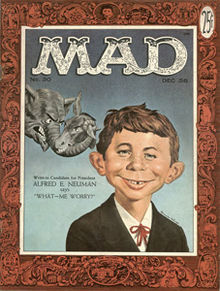
The Wasted Vote Syndrome
Suppose that you're like me, and that you regard the Democrats and Republicans as being equally cheesy. Suppose further that your favorite candidate is Alfred E Neuman, of the Mad Party. If the two major parties' candidates are neck-and-neck, voting for Alfred would be equivalent to not voting at all. If you want your vote to count, you need to choose the lesser of the two evils.
By the way, I was not entirely facetious about the Mad Party. Sweden has a Donald Duck Party, which attracts a few write-in votes from people, who are fed up with all of the major political parties. The Donald Duck Party should exercise caution.
If the DDP somehow manages to attract 4% of the national vote, they may find themselves holding a seat in the Riksdag (Swedish parliament). Then the Donald Duck MP would have to roll up his sleeves, and do some real work.
Anyway, the Wasted Vote Syndrome is not a problem in a well-designed multiparty system, with a rank-order ballot. We'll see why that is true in a later section.
But first, let's look at one more weakness of our traditional two-party system.

The Extremist Catastrophe and the Spoiler Effect
Suppose that we have a three-candidate election, in which the highest vote-getter wins (a plurality). Two of the candidates are moderates, with relatively similar views.
However the third candidate has extreme views. On Election Day, the two moderate candidates split the moderate vote. The extremist gets 40% of the vote, and wins the election, even though 60% of the voters find his views to be repugnant.
The Spoiler Effect is similar to the Extremist Catastrophe. It occurs when a third-party candidate can siphon off more votes from the Tweedledum Party than from the Tweedledees. Some political analysts claim that Ralph Nader was the spoiler in the U.S. presidential election of 2000.
Suppose that all of the Nader supporters had changed their minds at the last minute, and voted for the Democratic Party candidate, Al Gore. (Nader's political views were closer to those of mainstream Democrats than to the Republican views espoused by George W.) Then the election would have had a different result.
The Extremist Catastrophe--or the related Spoiler Effect-- can happen when a voting system that's designed for two candidates is applied to three or more candidates. Fortunately, there are voting systems that can avoid both problems.

Rank-order voting systems
We can avoid the Tweedledee-Tweedledum Effect, the Wasted Vote Syndrome, and the Extremist Catastrophe with a rank-order voting system. On the ballot, you mark your first-choice candidate, second-choice candidate, etc. If your first choice is from one of the smaller parties, you are not throwing your vote away, because you've specified a second choice and a third choice.
There are several rank-order voting systems, each of which has boundary conditions. Nobel laureate Kenneth Arrow (Economics) has shown that each rank-order voting system can lead to a paradoxical result under unusual circumstances.
My favorite rank-order voting system is the Condorcet Method. However the Green Party is pushing for Instant Runoff Voting (IRV). Here's how it works.
1. A computer examines the rank-order voting results. If any single candidate receives a majority of the first-choice votes, he automatically wins.
2. If there is no clear-cut majority, the computer looks for the Alfred E Neuman candidate, the one with the fewest number of first-choice votes. Then poor Alfred is bumped from the list.
3. If Alfred was my first choice, then the computer moves each of my other choices up a notch. My second choice candidate becomes my new first choice. And my third choice candidate becomes my new second choice.
Then we return to Step 1. This process is repeated until a clear-cut winner emerges.
IRV has made inroads in local elections in a few places in the USA. A similar system, the Single Transferable Vote, is used to elect the lower house of the Australian Parliament. Here's a LINK to the Wikipedia article on IRV.

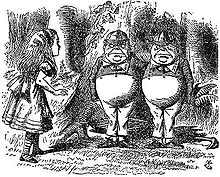
The Olympic model
Do we really want single-issue parties in Congress? In Israel, the small religious parties wield power that's out of proportion to their numbers in the Knesset (the Israeli Parliament). Why? Because they are needed in a coalition to form a majority. And there's always a quid pro quo.
I think that sensible election reform should set up the initial conditions to encourage four major parties, rather than two. I mentioned in an earlier section that this would ensure a variety of positions on quantitative issues.
Each voter should be able to choose to his top three candidates in ranked order. In the voting booth, you'd be like a judge at the Olympics. You would make a gold-medal choice, as well as silver medal and bronze medal choices as backups, in case your first choice did not win. That should decrease the Tweedledee-Tweedledum Effect.
If they wished to evolve beyond the debating-society stage, and to be taken seriously in elections, two somewhat similar small parties would have an incentive to merge, in order to form a major party.
Comparisons and summary
The Electoral College is the one feature of our voting system that almost everyone loves to hate. However it would take a Constitutional amendment to get rid of this anachronism. And that isn't easy to do. More to the point, direct presidential elections would have little impact on the other problems of our voting system.
Here are two other perennial favorites among the proposals for election reform, both of which are about money.
Let's see how they stack up against a True Multiparty System (TMS), which uses a rank-order ballot.
The first proposal would put strict spending limits on the part of candidates and political parties. The slogan: "Let's take the money out of politics!" Yeah, right.
Unfortunately, there's a fly in the ointment. Many judges have taken the position that money equals speech. From that perspective, some versions of campaign finance reform may not be consistent with Freedom of Speech, which is guaranteed in the Bill of Rights of our beleaguered Constitution. In contrast, a True Multiparty System does not conflict with the First Amendment.
Second, there's public financing of political campaigns. However TMS is cheaper. The only added expense is the extra computer time needed to process the results from Instant Runoff Voting, or from some other system that uses rank order ballots.
The point is that a True Multiparty System is independent of the various popular proposals for Campaign Finance Reform, and does not conflict with any of them. A TMS can stand alone, or it can be integrated with other reforms.
To summarize, a True Multiparty System would eliminate the Spoiler Effect, the Tweedledee-Tweedledum Effect, and the Wasted Vote Syndrome. If we had a TMS, our elected officials would have a greater incentive to nip financial problems in the bud, before they mutated into world-wide crises. Our election campaigns would be less about fluff and mudslinging, and would have greater educational value. When voters are given a wider range of meaningful choices, that may attract a higher turnout on Election Day.
Copyright 2012 and 2015 by Larry Fields

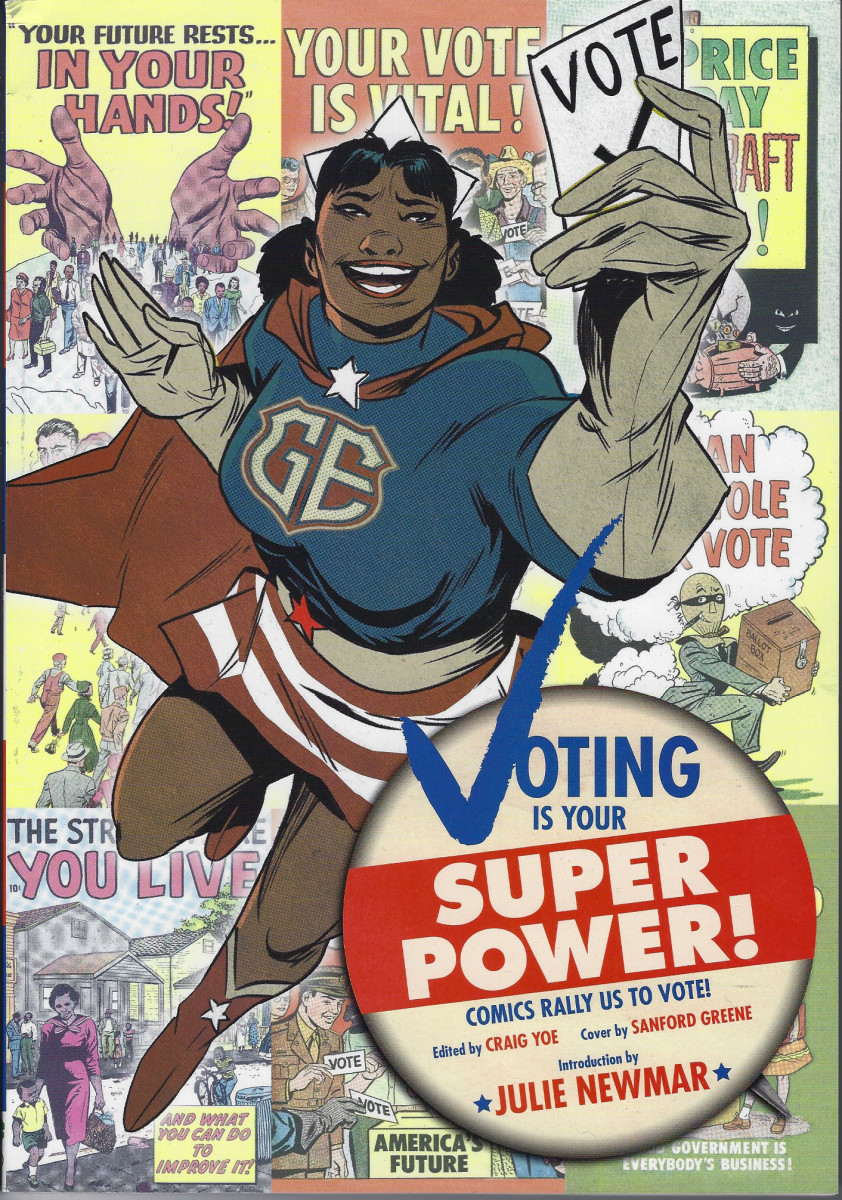


![Election 2014: A Message to The Voters [249*9]](https://usercontent2.hubstatic.com/9226753_f120.jpg)

